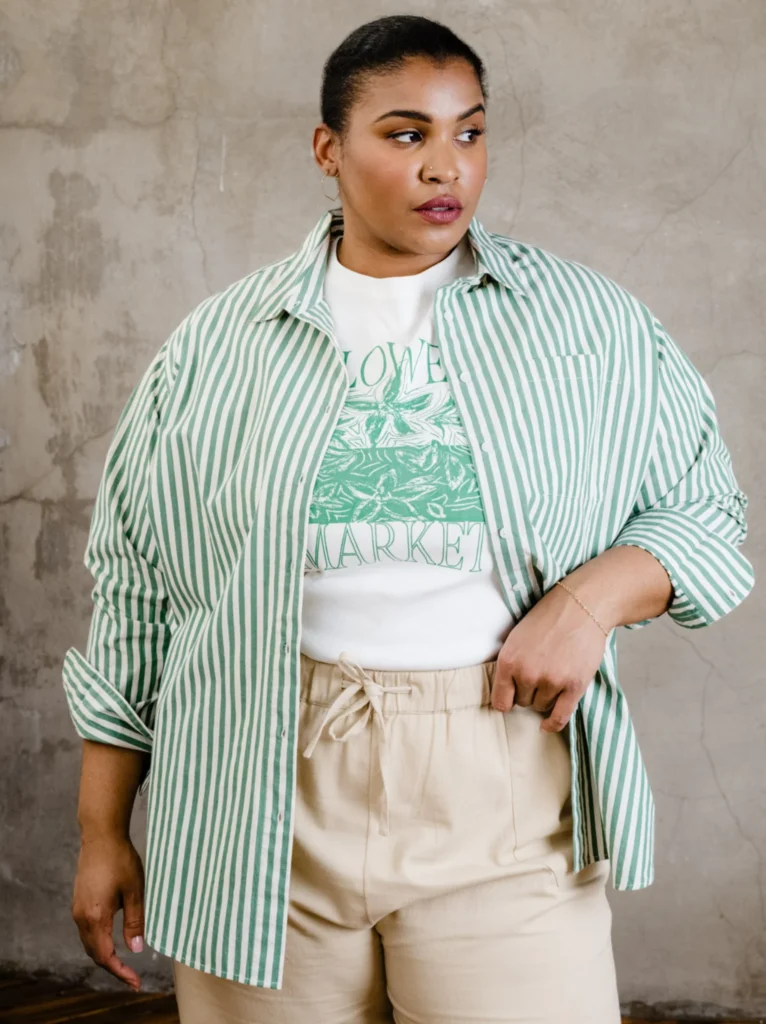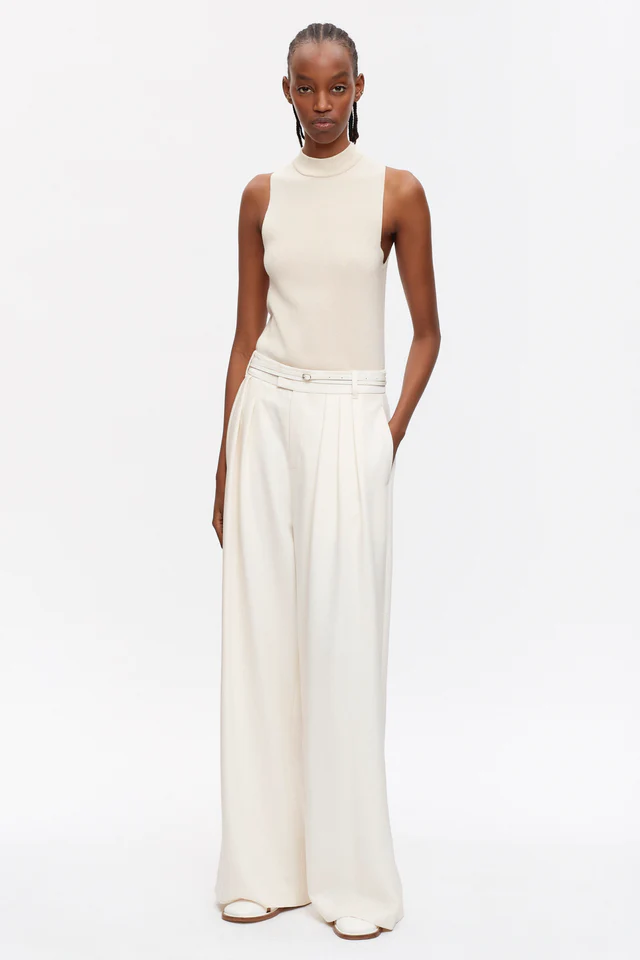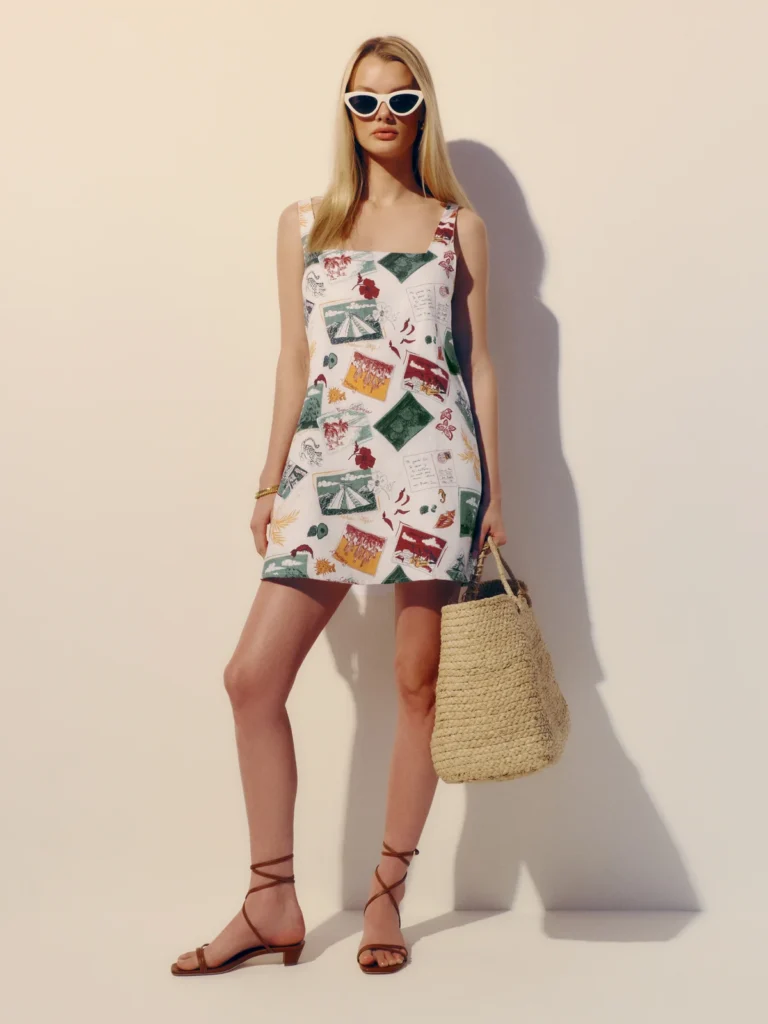France is taking a stance against fast fashion brands. Read more about the bill and our recommendations for where you can shop instead.
| All products featured on The Wellness Feed are independently selected by our editors. However, when you buy something through our retail links, we may earn an affiliate commission.|
There’s fashion and then there’s fast fashion. It emerged in the 1970s when low-cost, low-quality, and trend-heavy clothing began to flood the market at a rate that has increased to as many as 36 collections yearly. Yet, while consumers are happy at the accessibility of updating our closets regularly, the less enchanting tale is what happens behind the scenes- the production methods that have negatively impacted the environment and the fast accumulation of waste. In the U.S., for example, textiles account for 113. million tons of landfill waste yearly. But, when companies constantly sell consumers advertisements of a buy and waste lifestyle, what’s a country to do?
Can France’s Zero Food Waste Law Inspire The U.S. To Adopt Food Waste Solutions?
Some countries are taking a swing at fast fashion’s negative impact. France, a country that has recently banned unnecessary plastic packaging on produce, is planning to fine companies with a high number of products and turnover. Its new bill would make it the first country in the world to impose legislation to prevent the excess waste caused by cheap fast fashion.
What’s So Bad About Fast Fashion
Recently brands like Shein, Fashion Nova, and BooHoo have emerged as fast fashion giants. Thanks to influencers fashion hauls, celebrity-endorsed campaigns and collaborations, and hundreds of trending styles added daily, these companies have seen a metaphoric rise. Yet, what isn’t advertised are the unethical wages paid to ensure that products remain low, the chemicals used to produce cheap garments, and the staggering amount of waste polluting landfills. Here a few fast facts.
- Los Angeles based Fashion Nova came under fire over investigations showing that the brand owed hundreds of workers $3.8 million in back wages.
- Shein has stated that the company drops 500 new fashion items daily.
- According to Or Foundation, a Ghanaian-based nonprofit, secondhand markets in the country receive 15 million new garments a week.
- Boohoo has been under investigation for paying workers in the U.K. less than $5 per hour.
- A Greenpeace Germany investigation found that of the 47 Shein products tested, seven of them (15%) contained hazardous chemicals that break EU regulatory limits.
What’s In France’s Fast Fashion Reduction Bill?
In March of this year, the legislation was approved by the lower house of parliament in France. Its aim is to impose penalties on rapidly produced fashion items, such as those sold by the Chinese company Shein, in an effort to mitigate their negative environmental effects.
These penalties will help to navigate buyers away from fast fashion by making it unappealing. And, brands will also have to disclose with customers their environmental impact. Other important actions include:
- Prohibiting advertisements for the cheapest fabrics (which are generally plastic-based).
- Implementing an environmental fee on fast fashion items that will be used to support sustainable fashion manufacturers.
- Create a concrete definition of fashion fashion to create quotas on imports.
If passed by the Senate, this will be a monumental bill in the fight against fast fashion. And it that could become a template for other countries about how to take substantial actions to reduce landfill waste and mitigate its impacts such as greenhouse gas pollution.
Non-Fast Fashion Brands To Shop
If you’re looking for brands that are an alternative to fast fashion these are three brands that focus on creating garments that will last, paying fair wages, and using organic or recycled fabrics.

Able Sophia Button Down Shirt $108
Made from 100% cotton and ethically-made in India.

Kotn Women’s Plaza Trouser $198
Made from 100% Lyocell twill and handcrafted in Portugal. Kotn is a B Corp. Fabrics are dyed with OEKO-TEX® certified non-toxic dyes and leftover textiles are upcycled.

Reformation Cami Linen Dress $128
Across the stores, 21% of materials sourced are deadstock, recycled or next-gen fibers and 29% are Lyocell, recycled cotton, regeneratively grown cotton, deadstock, NAIA™ Renew Acetate.


